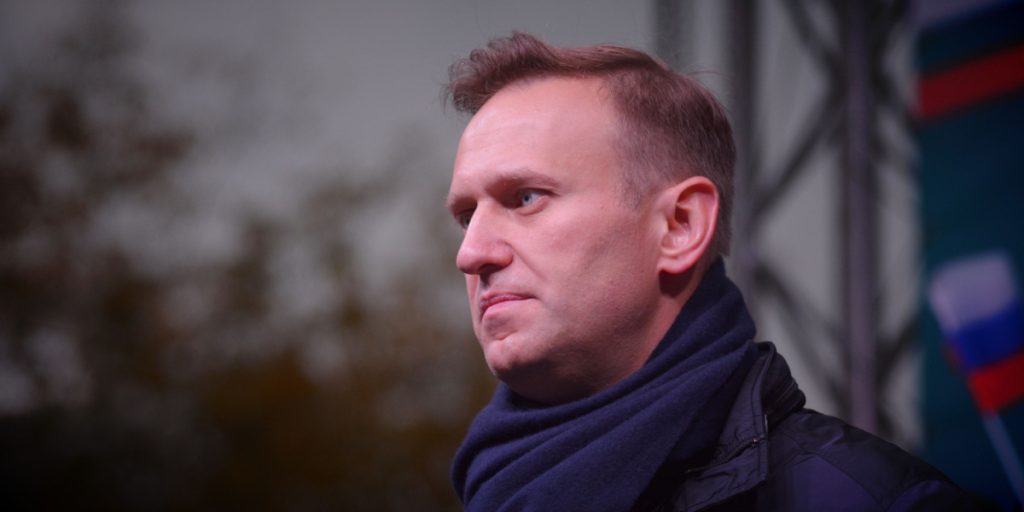Putin Discussed Navalny Swap Hours Before Announcing His Death.
Others are reading now
Russian dictator Vladimir Putin was reportedly discussing the exchange of Alexei Navalny for an FSB agent imprisoned in Germany just hours before the announcement of the opposition figure’s death, according to the independent Russian news service Agientstwo. One source mentioned that Putin had agreed to the exchange.
Agientstwo, drawing on conversations with individuals familiar with the matter, reported on Friday that Vladimir Putin discussed swapping Alexei Navalny for Russians detained in the West a few hours before prison services announced the death of the oppositionist.
Two sources claimed that Putin had discussed the politician’s exchange during a meeting with oligarch Roman Abramovich on the morning of February 16th. According to one source, Putin had consented to the exchange.
Journalist Christo Grozev also told Agientstwo he heard Putin had agreed to the swap. “I think it was either a cover for a murder plan or a strategic move to bring the talks almost to an end, hoping that if Germany agreed to release Vadim Krasikov, they would also agree to exchange someone else, a prisoner less important to Putin, in the absence of Navalny,” he added.
Also read
“When he learned the West was willing to give Krasikov back to Russia, Putin cold-bloodedly ordered Navalny’s killing,” another source told the portal. Sources claim that in addition to Navalny, Russia was to release imprisoned American citizens, Paul Whelan and journalist Evan Gershkovich, correspondent for the “Wall Street Journal.”
The West had proposed to Russia the exchange of FSB officer Vadim Krasikov, serving a sentence for murder in Berlin, and another Russian convicted in the USA. Discussions about the exchange had been ongoing at least since last spring, Agientstwo emphasizes.
At the end of February, Maria Pevchikh, an associate of Navalny, said he was soon to be released in exchange for an FSB officer serving a sentence in Berlin.
Pevchikh informed that on February 15th, she received confirmation that discussions about the exchange were in their final stage. “And on February 16th, Alexei was killed,” she added. Pevchikh explained that Navalny was to be released as part of a humanitarian exchange: “Russian spies in exchange for political prisoners.”
“Putin was made to understand that the only way to get Krasikov back was to exchange him for Navalny. ‘Oh, really?’ Putin thought. ‘I can’t stand Navalny being free. And if they want to exchange Krasikov, then we simply need to get rid of the bargaining chip. And then propose someone else in the process,'” Pevchikh said. She summed this up as “the behavior of a mad mafioso.”
The German newspaper “Bild” wrote that Russia had no intention of releasing Navalny despite the negotiations. Putin apparently did not want to wait any longer and led to the death of his greatest critic, the journal’s portal assessed.
Died “Suddenly” On February 16th, Russian prison services reported that Navalny had suddenly died at the “Polar Bear” penal colony in the town of Charp in the Yamalo-Nenets Autonomous District, where he was serving a lengthy sentence after being transferred from Melekhovo. The Kremlin critic “felt unwell” and “lost consciousness.” Ambulance was called, and attempts at resuscitation were made, but the oppositionist died, the services reported.
The cause of Navalny’s death remains unknown. His lawyers and family maintain he was murdered on the Kremlin’s orders, while according to Ukrainian military intelligence, Navalny died due to a blood clot.
Thousands of Mourners Mediazona reported that it requested data on passenger flow from the Moscow metro for March 1st to 3rd. After calculating the number of people who entered the Borisovo station (located next to the cemetery where Alexei Navalny was buried), it estimated there were 27,000 more than on regular weekdays.
The highest increase in passengers was recorded on March 1st, the day of Navalny’s funeral. On that day, 18.6 thousand more people entered the Borisovo metro station than usual, Mediazona reported.


